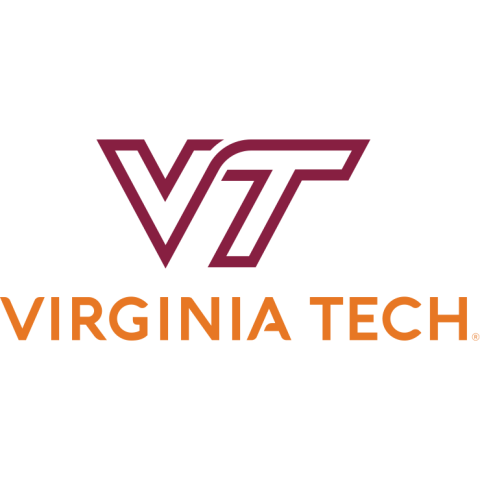
Harnessing the humanities for transformative tech leadership
You may also like
Two years ago, and after two decades spent working in the non-profit sector and for technology firms, including Google and Twitter, I made a move into higher education to advance a mission that had been quietly building in me during my years as an entrepreneur and executive – a mission centred on evangelising the humanities.
Months after joining the faculty of Virginia Tech, I wondered: if breakthrough leaders of our AI-ascendant era will, above all else, need to embody high human skills and sensibilities, why isn’t there an executive degree in the humanities in the HE landscape?
A year later, in 2023, I launched (and lead) the Virginia Tech Institute for Leadership in Technology. The institute seeks to draw on the humanities – from history and religion to literature and creative writing – to offer rising leaders in the technology landscape a new way to cultivate their leadership.
- How authentic stories can empower the ‘unheard voices’
- Campus webinar: Can universities keep pace with digital transformation?
- Biased AI poses a threat to academic freedom that must be confronted
Our inaugural class of fellows includes executives from Fortune 500 companies such as Amazon, Microsoft and Boeing. While much of the coursework in our one-year low-residency programme takes place virtually, our cohort gathers in person three times per year. There’s an ignition experience in Blacksburg in the fall, a January immersion in a place known for its commitment to the arts (this past year in Miami) and a celebration of community in the D.C. area this April. Before receiving their leadership credentials, fellows will have together studied history and philosophy, written about literature and ethics and immersed themselves in place and faith.
A lot of the debates about the future of technology tend to be about policy and rules and controls and governance. For me, though, other animating questions are: who’s in the room where things happen? What kinds of experiences do people bring to those rooms? Have they lived in specialised silos – or have they, in the best tradition of the humanities, lived boldly in the human other?
Why the human element matters in tech leadership
I am often asked: what are the humanities? Education and experiences that cultivate the skills of introspection and imagination, storytelling and story listening, I often say. A year ago, I crafted a six-word poem to express the power of the humanities: Awe and wonder, in the other. In our self-involved, short-form era, the ability to think selflessly, and in long form, about human communities near and far – past, present and future – not only forms the basis of humanistic enquiry, but also constitutes the essence of leadership.
When selling software to customers, designing services for new markets, imagining product market fit or developing an approach to recruiting and retention, the ability to live in the human other is, quite simply, a superpower.
I came to understand the importance of humanities during my career not long after reading The Fuzzy and the Techie: Why the Liberal Arts Will Rule the Digital World by Scott Hartley, a former colleague from Google. Many leaders in the technology sector bring to bear a foundational understanding of the technical underpinnings of our technology landscape – but, in my experience, the most inspired also possess a distinct human element that we should cultivate and celebrate.
Blending humanities with STEM
In his book, Hartley offers a multitude of real-world examples that lift the power of blending liberal arts skill sets with the best of STEM, including data literacy. He cites examples that go well beyond Steve Jobs’ assertion that Apple aspires to “stand at the intersection of technology and the humanities”. Indeed, blending the liberal arts and STEM has enabled leaders beyond Jobs – in fields from national security to gene editing – to use their intuition in balancing quantitative data with qualitative assumptions, to draw on their sense of narrative to detect signal from noise, and to build on their familiarity with varied places, cultures and norms to adeptly expand businesses internationally.
My own career, like those of so many across the technology landscape, was fuelled by the humanities, too – across communities and countries, fields and functions. Until I read Hartley’s book, I lacked the language to see this fuel. Afterwards, as Bruce Springsteen sings, I “gave it a name”. I became active in the humanities ecosystem, joining boards such as Virginia Humanities and the National Humanities Center, and encouraging other leaders in the liberal arts field to consider “going to market” in new and novel ways. Our technology landscape – indeed, our culture and civic spaces, writ large, I felt – depended on thinking differently.
‘The power of the liberal arts in inventing tomorrow’
In 2022, Sylvester Johnson, associate vice-provost for public interest technology and founding director of the Center for Humanities, asked that I consider Virginia Tech as a stage on which to advance my thinking and mission. Truth be told, he had me at hello. To represent the power of the liberal arts at a storied research university dedicated to inventing tomorrow and inspired by the past – and a timeless motto, “Ut Prosim” (“That I May Serve”) – inspired awe and wonder in me.
We’re honoured to have launched the Institute for Leadership in Technology here in Blacksburg. We’re even more grateful to our inaugural class of 2024, which embodies the best of the global leadership this new era will demand. And we’re confident that, over time, we will extend all we’re learning about the links between the humanities and leadership to other segments of our society, not just technology.
Most of all, we hope our mission will move the conversation forward and catalyse other efforts, here and abroad, that lift the humanities along with all the other elements of human flourishing.
Rishi Jaitly is a professor of practice and distinguished humanities fellow in the Center for Humanities, where he founded and leads the Institute for Leadership and Technology, at Virginia Tech.
If you would like advice and insight from academics and university staff delivered direct to your inbox each week, sign up for the Campus newsletter.
Additional Links
For more articles related to this topic, see our spotlight collection Making the case for arts and humanities.




